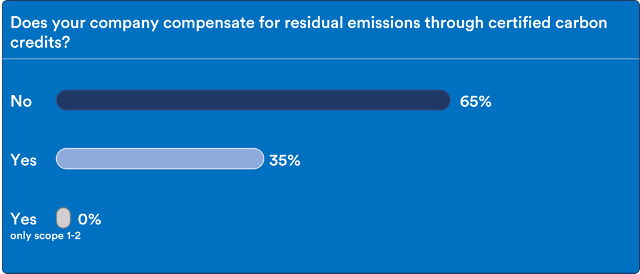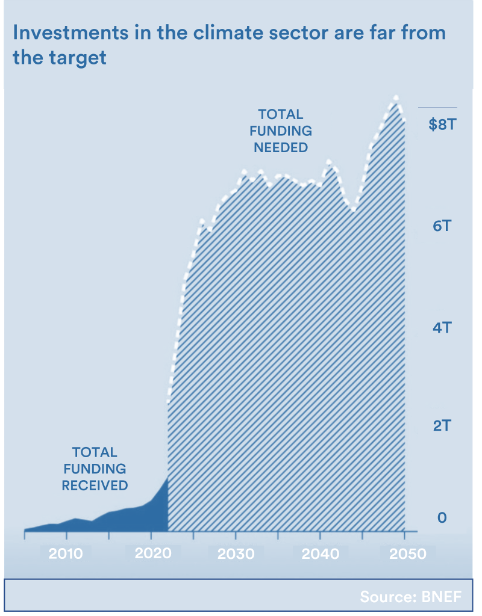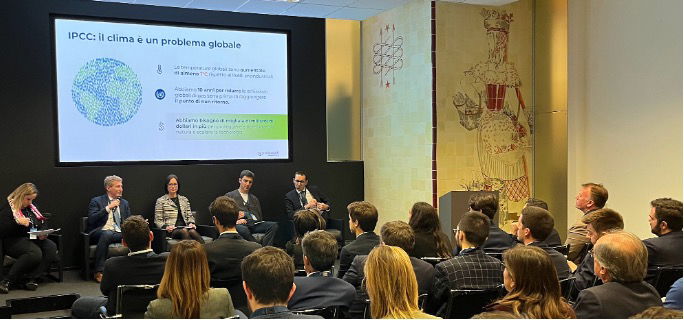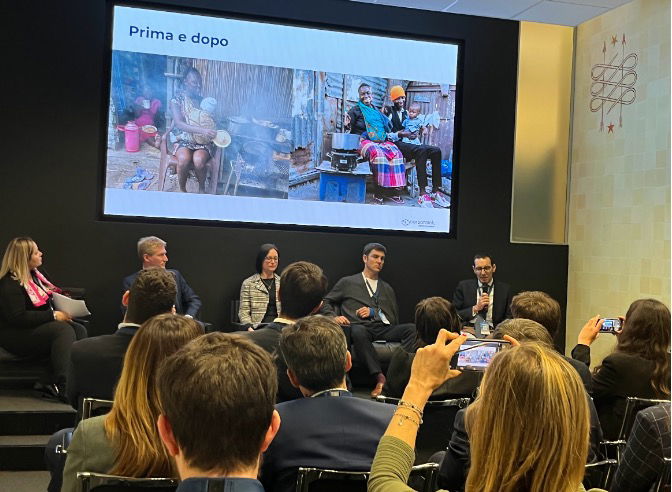A national dialogue on corporate climate action


· 5 min read
"1.6 planets. This is exactly how much we consume every year." (Patricio Lombardi, first Climate Minister in the Americas).
Leading climate advisory Carbonsink, in partnership with the Italian Stock Exchange (Borsa Italiana), recently hosted a rare national dialogue on corporate climate action, bringing together Italy's business leaders to discuss corporate climate strategies and the relevance of carbon credits for corporate Net Zero objectives.
The event commenced with an impassioned keynote address from Patricio Lombardi, the first Climate Secretary in the Americas (as Minister of Argentina) and illuminem Thought Leader. Lombardi's story and lifelong battle against climate change and deforestation serve as a shining example on both sides of the Atlantic. Most notably, his ministerial mandate pioneered the use of carbon credits to reduce deforestation and protect biodiversity in 1 million hectares of pristine jungle.
Province of Misiones, Argentina

According to the latest data, since 2019, the Voluntary Carbon Market (VCM) has experienced explosive growth of 600%, resulting in the avoidance or removal of approximately 1.8 billion tonnes of CO2 emissions.
While this may sound encouraging, the event revealed another reality. An extemporaneous survey of companies attending the event, representing Italy's largest corporations, showed that only 35% have already adopted a carbon-neutral strategy, while the other 65% confessed to lacking a roadmap for achieving carbon neutrality. Similar statistics are rumored to be valid for other major EU economies, and the commitment rate outside of Europe is likely even lower.
Although the private sector has made remarkable progress in climate action in the latest years, these revealing statistics provide vivid proof that incumbent industry leaders still have much to do in the race toward carbon neutrality and Net Zero.

Renowned Italian climate expert and illuminem Thought Leader, Andrea Maggiani, Founder of Carbonsink and South Pole’s Global Tech Strategy Director, drew attention to the technology challenge of Net Zero strategies, confirming that "under-financing is the #1 problem."
Under-financing in the climate sector

Source: BNEF
To achieve the goal committed in the Paris Agreement of keeping the global temperature increase below 1.5°C above pre-industrial levels, an estimated 3 billion tonnes of CO2 emissions must be removed annually before 2030, increasing to 7 billion tonnes per year by 2050 (Bloomberg, 2022). Maggiani explained that scaling and achieving “economies of learning” in Carbon Dioxide Removal (CDR) tech is thus crucial for our future… and this “vital goal” strikingly requires an annual expenditure of over 200 billion Euros.
For reference, the cost of removing 1 ton of CO2 from the atmosphere through direct air capture (DAC) currently ranges between hundreds and thousands of dollars... As a result, only a minimal percentage of the total CO2 removed today is captured through technological solutions... Financial vehicles like the newly-launched South Pole NextGen CDR Facility have begun to foster the development and adoption of this climate technology. Still, the market needs to be expanded and demand created if we want to reach the level of removals necessary to meet the Paris climate objectives.

Bethan Halls from South Pole further guided the audience through the main challenges faced in the complex carbon credits market. With the rapid growth of voluntary carbon markets (VCM), regulations and standards need to keep improving and developing while new players enter the industry with innovative solutions. Halls emphasized that “VCM must be improved, rather than discarded”.
Leading Foundation AVSI (managing around $100M p.a.) shared results on the social impact of carbon projects supported by the climate finance of certified carbon credits. Alessandro Galimberti, AVSI’s Head of Climate Change, spearheaded the delivery of climate-efficient cooking stoves to local communities in Mozambique, promoting "clean cooking" and supporting the empowerment of women and children by improving their health and freeing them from traditional cooking duties. Approximately 4 million people, out of the 3 billion worldwide who lack access to clean cooking, die each year due to fumes and air pollution from wood and charcoal used in traditional cooking methods.
In the example cited, with financing from carbon markets, AVSI’s distribution of clean-cooking stoves in Mozambique has increased from 77,000 delivered in the first 8 years to 155,000 in just the past 2 years alone (25% of which was financed by carbon credits). In the next three years, a further 480,000 families will benefit from the expansion of the project, with 69% of the financing being provided by international carbon credits.

“We have the privilege to know, thus we have the duty to act.” (Patricio Lombardi, first Climate Minister in the Americas)
illuminem Voices is a democratic space presenting the thoughts and opinions of leading Sustainability & Energy writers, their opinions do not necessarily represent those of illuminem.
illuminem briefings

Climate Change · Effects
Kasper Benjamin Reimer Bjørkskov

Degrowth · Regeneration
illuminem briefings

Biodiversity · Sustainable Lifestyle
Al Jazeera

Effects · Climate Change
Forbes

Sustainable Living · Climate Change
Nikkei Asia

Carbon Market · Carbon